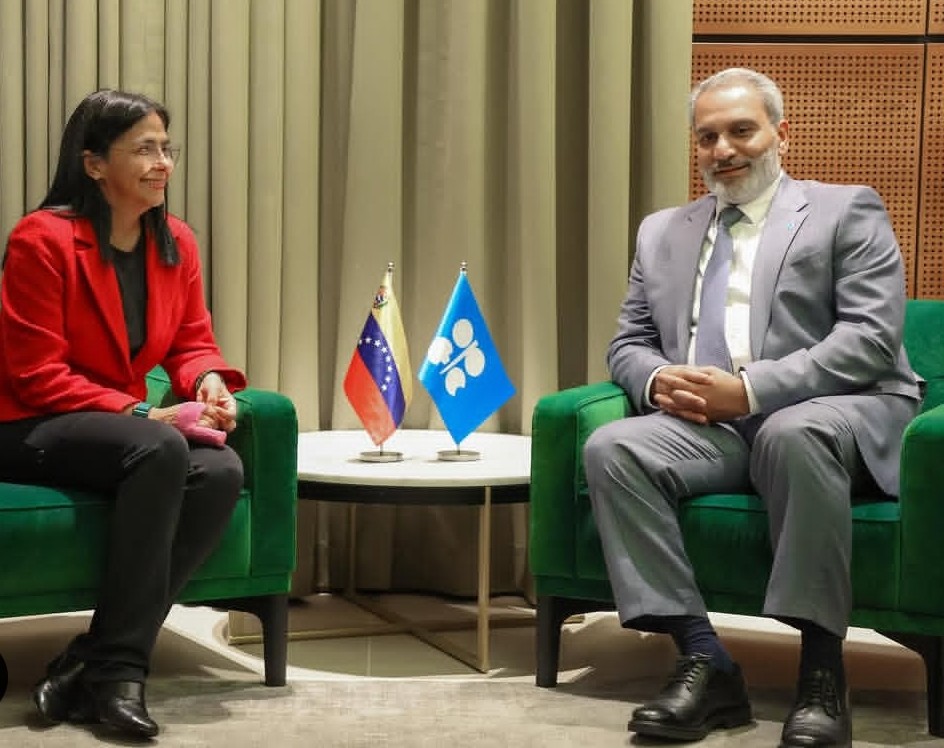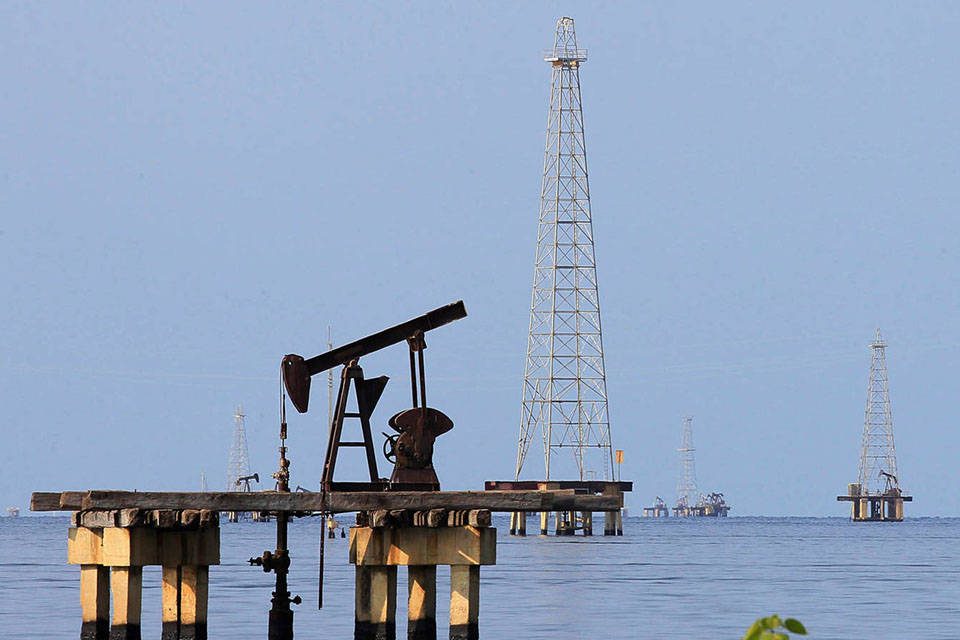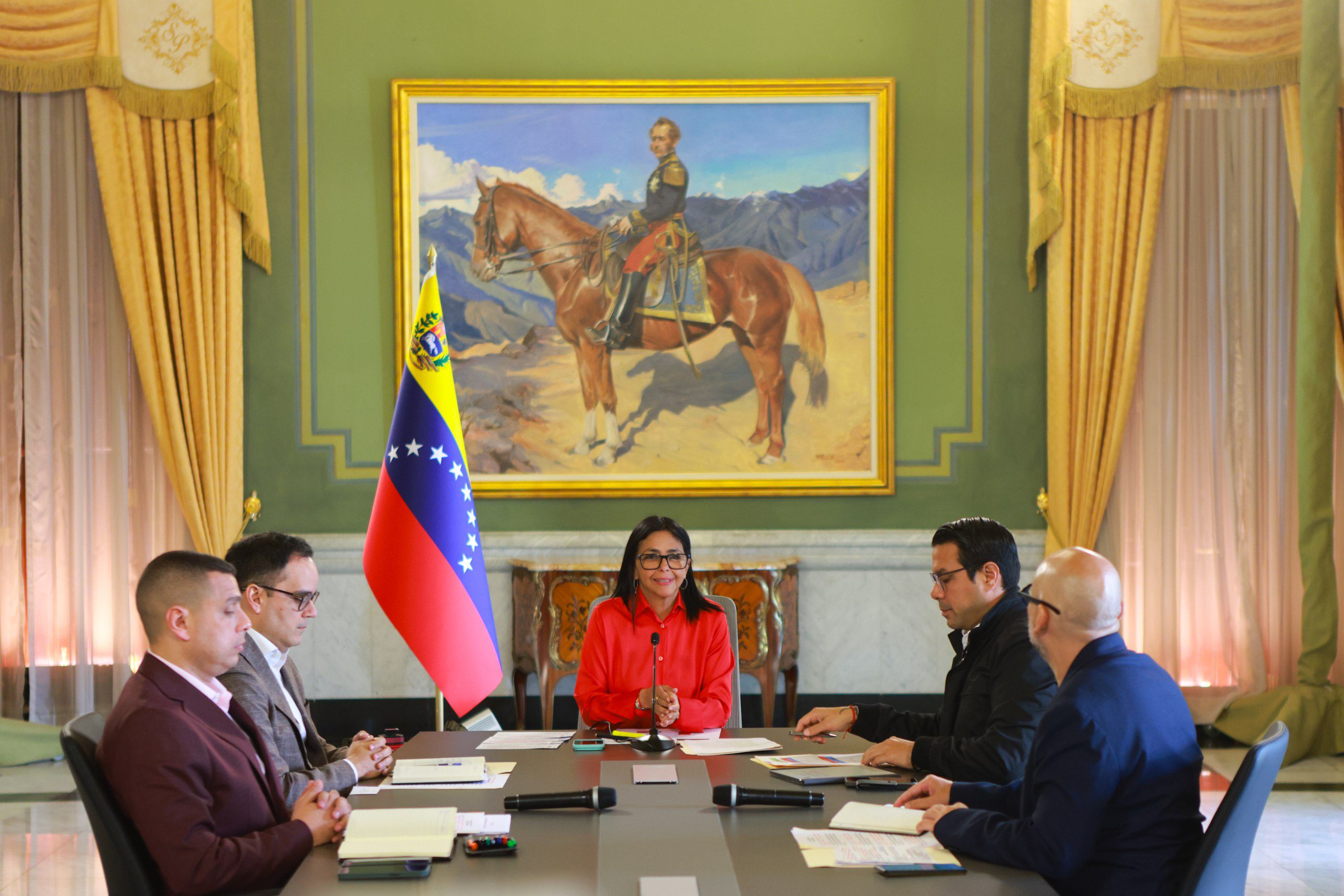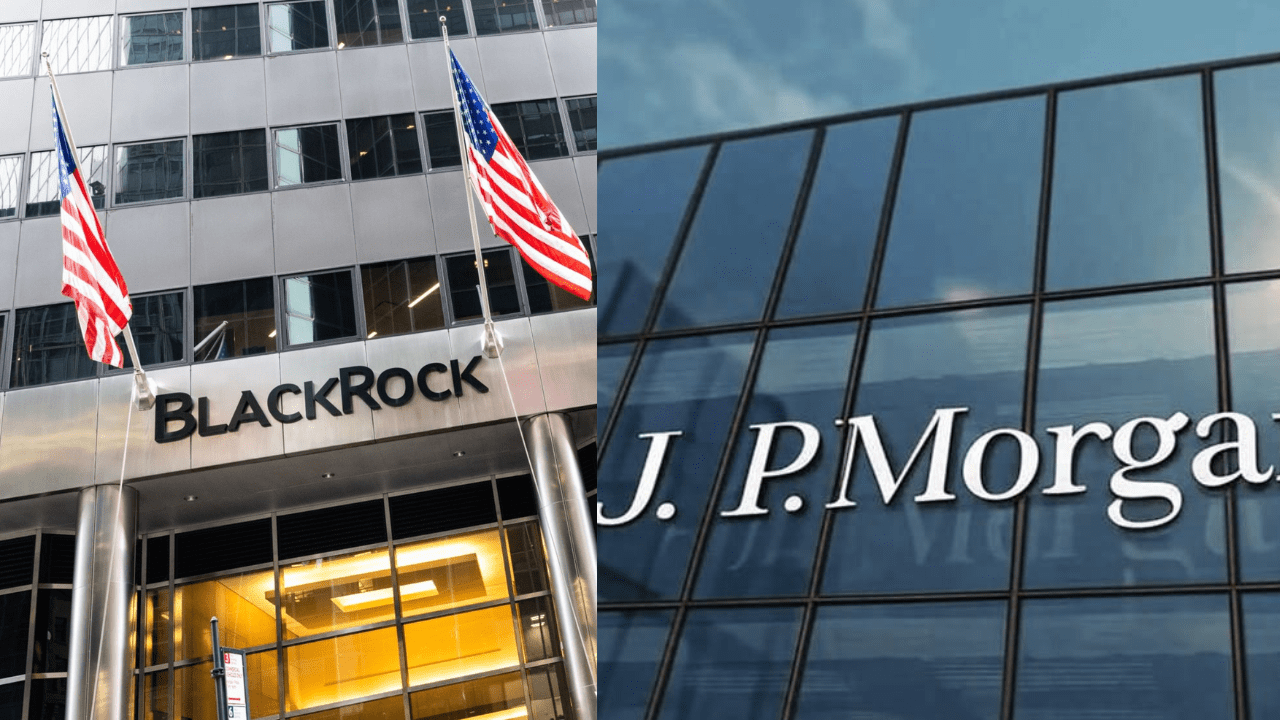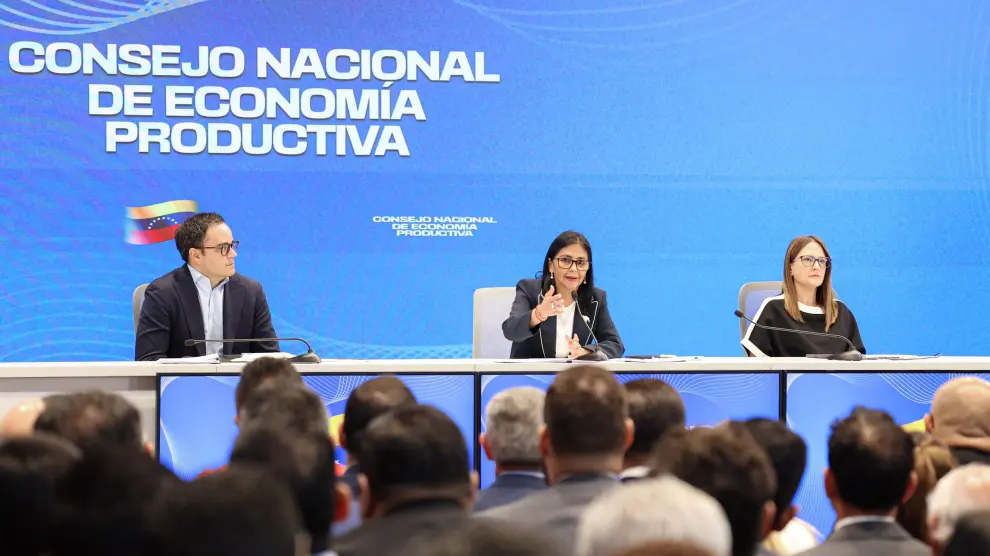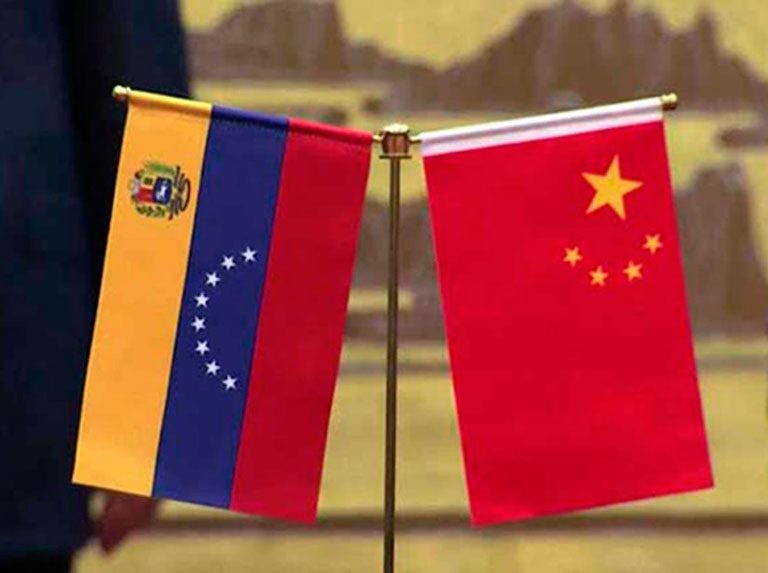The Executive Vice President and Minister of Hydrocarbons of Venezuela, Delcy Rodríguez, met upon her arrival with the Secretary General of the Organization of the Petroleum Exporting Countries (OPEC), Haitham Al Ghais. Photo: Social Media.
Guacamaya, July 8, 2025. Welcomed by the Secretary General of the Organization of the Petroleum Exporting Countries (OPEC), Haitham Al Ghais, Rodríguez arrived in the Austrian capital accompanied by deputy ministers from the energy sector and Venezuela’s ambassador to the country, Claudia Salerno. The national delegation aims to emphasize Venezuela’s strategic importance within the oil bloc and its role as a promoter of consensus on energy matters.
During her participation, the Vice President will deliver a message from Nicolás Maduro, focusing on the “need to strengthen unity among member countries in the face of the complex challenges currently confronting the industry.” According to state-owned Petróleos de Venezuela (PDVSA), the goal is to advocate for common policies that ensure both supply security and equitable development for nations of the Global South.
What is the OPEC International Seminar?
The OPEC International Seminar has established itself as the organization’s premier dialogue forum outside of technical and ministerial meetings. Held periodically in Vienna since 2001, this event brings together energy and oil ministers from member and non-member countries, executives from major oil companies, academics, analysts, and representatives of financial institutions. Its purpose is to discuss trends in the energy market, demand evolution, the energy transition, and the role of fossil fuels in a changing world. This year’s edition, the ninth, takes on special relevance amid geopolitical tensions and growing demands to reduce carbon emissions.
Venezuela, for its part, not only participates as one of OPEC’s founding members but has historically played a leading role in its consolidation. In 1960, alongside Saudi Arabia, Iran, Iraq, and Kuwait, Venezuela pushed for the organization’s creation to defend the interests of producer countries against the practices of major oil companies. Over the decades, it has actively contributed to defining production quotas, pricing policies, and cooperation strategies with other international actors.
PDVSA described the seminar as a “strategic opportunity” to deepen multilateral cooperation in a global context marked by market fluctuations and the energy transition. “The Venezuelan delegation is attending with the commitment to advance policies aimed at ensuring market stability, supply security, and the comprehensive development of Global South nations,” the company stated.
How is Delcy Rodríguez able to attend if she is on the EU and U.S. sanctions lists?
Rodríguez’s presence in Austria also highlights the diplomatic complexities arising from international sanctions. The Venezuelan Vice President is listed on the sanctions lists of the European Union and the United States, which include restrictions on entry and transit through European territory. However, the EU’s legal framework allows for exceptions when the participation of a sanctioned individual is necessary to fulfill international obligations or attend relevant multilateral meetings.
In such cases, the host country’s authorities may issue a “Schengen Type C visa for official or mission purposes”, also known as a courtesy visa, which permits brief stays for humanitarian reasons, international interest, or to fulfill diplomatic commitments. This same procedure was used in July 2023, when Belgium facilitated Rodríguez’s entry to participate in the EU-CELAC Summit in Brussels, despite the sanctions against her. On that occasion, the visa was justified as an exception in the interest of the EU and to ensure full representation of delegations at a multilateral forum.

